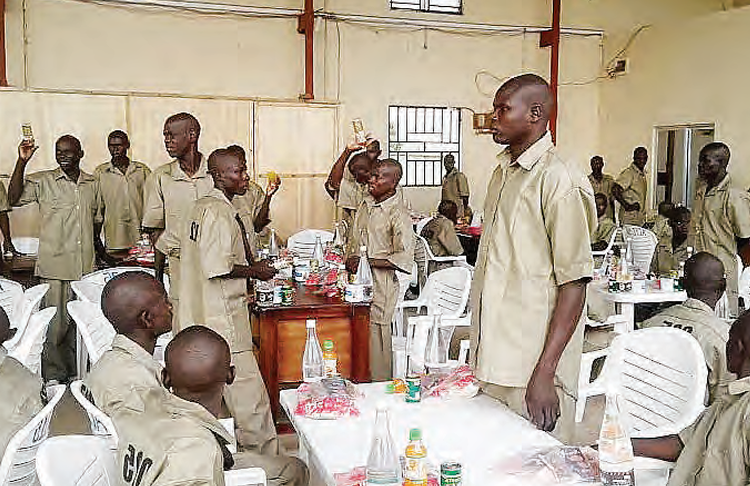By Abigail Philip David
Security experts, civil society groups, and victims of terrorism have strongly criticized the Nigerian government’s decision to reintegrate repentant Boko Haram terrorists into society, arguing that it prioritizes former insurgents over their victims.
Many have accused the government of “pampering” ex-terrorists while thousands of displaced persons remain in dire conditions in Internally Displaced Persons (IDP) camps.
Security consultant Abdullahi Mohammed Jabi denounced the reintegration of 5,000 former terrorists into communities they once terrorized. He described the move as a betrayal of Nigerians who sacrificed their lives defending the country.
“The government is making a grave mistake. These criminals should face justice, not be rewarded with reintegration,” Jabi stated. “Farmers are stuck in IDP camps while those who terrorized them are being welcomed back. This policy is a failure.”
His comments come amid fresh concerns over security, following the killing of 22 soldiers, including a commanding officer, in Borno on January 25, 2025. The attack occurred during an offensive against Boko Haram in the Timbuktu Triangle, where insurgents used suicide bombers and explosive-laden vehicles to repel troops.
At a recent Lake Chad Governors’ meeting in Borno, it was revealed that over 5,000 repentant terrorists had been reunited with their families. Jabi called the move an “insult” to victims and fallen soldiers, saying, “This is a policy disaster. The government must reconsider.”
Calls for Justice Over Reintegration
Auwal Musa Rafsanjani, Executive Director of the Civil Society Legislative Advocacy Centre (CISLAC), also opposed the program, arguing that it rewards perpetrators while neglecting victims.
“We cannot accept the reintegration of terrorists while their victims receive no compensation or rehabilitation,” Rafsanjani said. “Those who committed atrocities should be prosecuted, not absorbed back into society.”
Sanusi Isa, Amnesty International’s country director, echoed this sentiment, insisting that individuals responsible for crimes must face fair trials.
“Justice must be served. Victims and their families deserve accountability,” Isa said.
Chibok Community Leader Decries ‘Injustice’
Mutah Nkeki, a leader in the Chibok community, accused the government of injustice, particularly regarding the abduction of Chibok schoolgirls in 2014.
He alleged that families of the freed girls have been denied access to them, worsening their trauma.
“The government has caged our daughters. Even their parents can’t see them,” Nkeki claimed. “Meanwhile, the same government is treating Boko Haram fighters like VIPs.”
Nkeki also alleged that some former terrorists were now living with abducted Chibok girls, further deepening the community’s suffering.
Government Defends Reintegration Program
Borno State Commissioner for Information and Internal Security, Prof. Usman Tar, rejected the criticisms, stating that the government has invested significantly in resettling affected communities.
“Our support for affected communities far exceeds what we spend on former insurgents,” Tar said. “Most of those reintegrated are civilians caught in the conflict, not hardcore terrorists.”
Regarding allegations that rescued Chibok girls are being withheld from their families, Tar said, “That’s not true. Many have returned home, but as adults, they are free to live where they choose.”
The debate over reintegration continues, with many calling for a policy shift that prioritizes justice for victims over rehabilitation for insurgents.

Leave a Reply